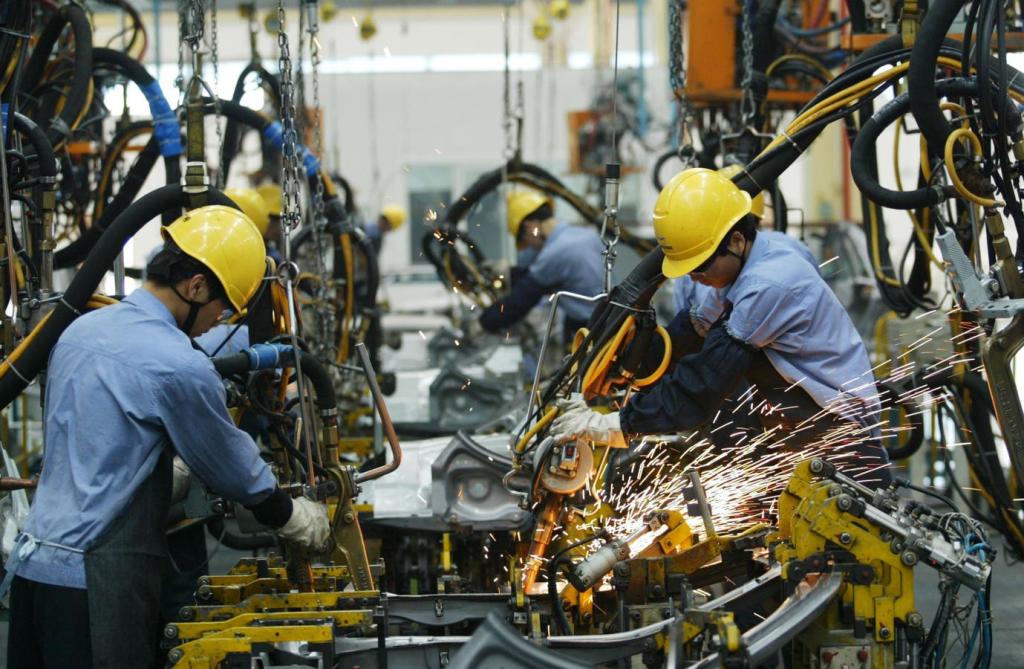Ford Cuts 4,000 Jobs in Europe Amid EV Demand Challenges
Explore Ford's significant job cuts in Europe as the company confronts declining electric vehicle demand and intense market competition.

Key Points
- Ford announces 4,000 job cuts across Europe, primarily impacting Germany and the UK, in response to declining electric vehicle demand.
- The automotive industry faces significant challenges, including stiff competition from Chinese manufacturers and a lack of government incentives for EVs.
- Ford's restructuring aims to improve efficiency while addressing the implications of tighter emissions regulations and shifting consumer preferences.
In a significant shift that reflects the current state of the auto industry, Ford has announced its decision to cut 4,000 jobs across Europe by the end of 2027. This announcement comes as a response to declining demand for electric vehicles (EVs) and intense competition from both established and emerging market players. The job cuts primarily affect Germany and the UK, highlighting the broader challenges the company faces amid rapid changes in consumer preferences and economic conditions.

The Landscape of Job Cuts
The recent job cuts announced by Ford represent about 14% of its European workforce and are a part of a larger restructuring plan aimed at improving operational efficiency. This decision is not merely based on corporate strategy but is also a reflection of broader market realities. The automotive industry has been beleaguered by falling sales of electric vehicles and increased competition from Chinese manufacturers, which has forced many companies, including
and
, to rethink their operational strategies.
Contributing Factors to Job Reductions
Several factors are driving these job cuts. First and foremost is the lack of government incentives and support for electric vehicles within the European market. Ford's sales in Europe have plummeted by 17.9% this year, significantly higher than the industry-wide decline of 6.1%. Moreover, the
's recent policies and the cessation of certain EV subsidies have created a challenging environment for automakers trying to pivot towards electric mobility.
Ford's Chief Financial Officer, John Lawler, has called for a clear policy agenda from the German government and the EU to advance e-mobility, such as improved charging infrastructure and better incentives for consumers to buy EVs. Without such measures, manufacturers are left grappling with a misalignment between regulatory requirements and actual market demand.
The Human Impact of Restructuring
While restructuring for greater efficiency might seem like a necessary business strategy, the human cost is significant. The layoffs, affecting both administrative and product development roles, have raised concerns about employee morale and future job security. Ford aims to implement these cuts primarily through voluntary redundancy, recognizing the emotional and financial impact on its workforce.
Lisa Brankin, Managing Director of Ford in Britain and Ireland, acknowledged the challenges ahead by stating, “Making this announcement isn’t something that anybody wants to do, and I appreciate it will have a very significant impact on our employees”. This sentiment illustrates the difficult decisions companies must make to ensure long-term viability in a highly competitive market.
Future of Electric Vehicles and Competitive Landscape
As Ford attempts to navigate this challenging terrain, it continues to invest significantly in electric vehicle technology. The company has announced plans to reduce production for its new Explorer, an electric SUV developed in Germany, which further complicates its position in the EV market. Ford's strategy includes a focus on essential vehicle types while simultaneously confronting the changing landscape characterized by shifting consumer preferences and enhanced competitive pressure.
The automotive industry is indeed undergoing a profound transformation with a focus on sustainability and innovation. However, the road towards a fully electric future is fraught with challenges. Automakers must adapt to not only meet regulatory compliance but also compete against aggressive new entrants, particularly from Asia.
Additionally, discussions surrounding regulations, such as the Zero Emission Vehicle (ZEV) Mandate in the UK, are critical. With targets ramping up to require a staggering 80% of car sales to be zero-emission by 2030, many manufacturers are concerned about the pace of this transition. Despite the challenges, the call for an accelerated infrastructure to support this shift presents an encouraging prospect for the future of electric vehicles.
Looking Forward: Navigating Challenges
In wrapping up, Ford's announcement of job cuts is a clear indicator of the significant hurdles the automotive sector faces today. The shifting dynamics within the market, compounded by competition and regulatory challenges, demand urgent action from industry leaders. To remain competitive, Ford and others must invest in both technology and policy advocacy to shape a more favorable environment for electric vehicles. There is potential for transformation, and with the right strategies, the industry can emerge stronger from this disruption.


